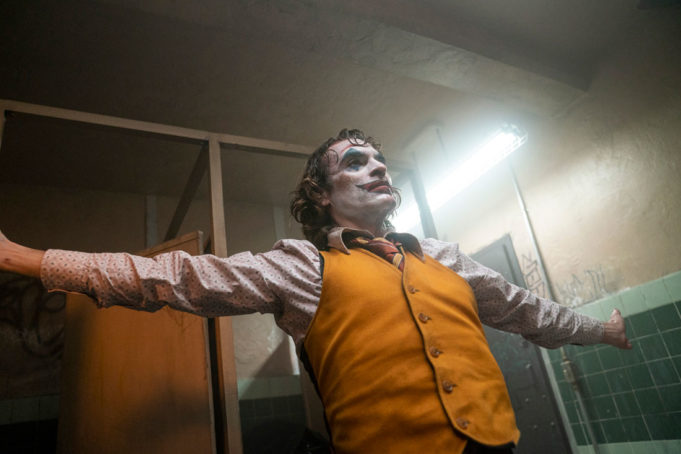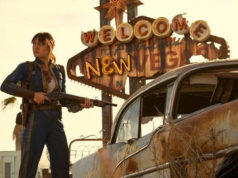Joker has a problem. What could have been a dark satire and a social commentary on society and its cruelty is instead a movie that exploits what society does not understand: mental illness.
The man who takes up the eponymous title, Arthur Fleck (Joaquin Phoenix), is a down-on-his-luck sap who just wants to make people smile. His gaunt stature makes him an easy target for bullies to pick on or beat the hell out of. Fleck laughs uncontrollably when he feels uncomfortable and gives out a card that reads that he has an unmanageable condition that causes random outbursts of laughter. Fleck wants to do comedy, but he’s not funny. He lives with his equally broken mother (Frances Conroy) in a rundown apartment in the seedy underbelly section of Gotham City. A no-good at his job gives Fleck a gun after one beating, and while on the subway, his compulsive laugh explodes and three young white guys in suits beat him to the ground. In a panic, he pulls the gun and kills them. This is where things get worse for both the movie and the clown.
Joker is an angry, depressing, joyless, plodding, mean-spirited movie that glamorizes violence. Worse, it’s frightening and dangerous, and for the first time in my life, I feel a movie could inspire mentally unstable people to commit extreme acts of violence. After he kills these three rich white kids, the public makes the unknown killer (only described as someone in a clown mask) a revolutionary because they killed rich people. Fleck inadvertently becomes a deranged Robin Hood to the poor, and writer-director Todd Phillips (The Hangover) plays that up when Fleck is walking out of his apartment in full Joker attire, with real-life convicted pedophile Gary Glitter’s “Rock and Roll Part 2” blasting overhead. This is a colossal insult to the audience. The film wants us to sympathize with Fleck because of his lifetime of mistreatment and abuse, but this scene encourages the viewer to fist-pump that the once-dull Fleck is now in full confident Joker mode, smiling as he heads out, ready to murder. Joker is not an antihero. He’s not a revolutionary. Joker is a terrorist. In his delusional mind, he wants to relish the fame surrounding the praise of the killing of the three rich goons on the subway, who only deserved to be arrested and jailed.
A major problem with Joker is it stands in a long line of movies that exploit and falsely identify mental illness. Fleck is described as mentally ill by a psychiatrist who does not care to help him, and we see “mental illness” scribbled throughout his journal of jokes. This is why people are afraid of individuals who really are mentally ill or why folks are afraid to tell loved ones that they suffer from mental illness. Fleck is not mentally ill. He’s mentally unstable — a significant distinction — and so was his mother. There’s nobody around to understand and help him with his shattered thoughts.
Joker isn’t influenced by Taxi Driver. It is Taxi Driver, just made decades later. Joker exploits a sick man who needs proper healthcare and makes him a hero for killing the wealthy. It’s a real shame because Joaquin Phoenix — one of the best actors alive — gives one of the best performances of his career. He disappears, and we see a schizophrenic who just can’t catch a break and descends into madness. Phoenix’s performance is the only thing good about this movie. The rest is just background noise.
Joker
Starring Joaquin Phoenix and Frances Conroy. Directed by Todd Phillips. Written by Todd Phillips and Scott Silver. Rated R.












